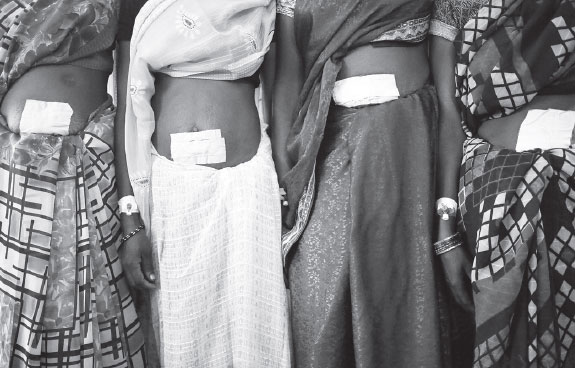Drug firm denies 'rat poison' contamination
The company at the center of an investigation into why more than a dozen women died after being sterilized in India has denied that the antibiotic tablets it manufactured were contaminated with a chemical compound commonly found in rat poison.
Preliminary tests of ciprocin tablets made by Mahawar Pharmaceuticals, a small firm based in Chhattisgarh state, were found to contain zinc phosphide, two senior officials in the state said on Saturday. Samples have been sent to Kolkata and Delhi to verify that they were contaminated.
The antibiotics were handed out at a mass sterilization held a week ago at a government-run family planning camp in the state, one of India's poorest. At least 15 women have died, most of whom had attended the camp.
Mahawar Pharmaceuticals Managing Director Ramesh Mahawar denied any wrongdoing and said in a statement released by the company that information related to the incident had been "exaggerated".
"We want to make it clear that yesterday (Friday) in our spare store room only a sticky pad to trap rats was found and this is being portrayed as rat poison," he said in the statement issued late on Saturday.
"We will fully cooperate with the government in this investigation ... We believe that after an unbiased investigation, the allegations against will prove to be baseless," he said.
Police arrested Mahawar and his son on Thursday. Mahawar has said they are both innocent. He and his son are still in custody and the statement was released by the company on Mahawar's behalf.
The state government has banned the sale and distribution of all medicines from Mahawar Pharmaceuticals. It has seized 200,000 tablets of Ciprocin 500 and more than 4 million other tablets made by the company.
More possible victims arrived at hospitals from villages on Thursday and Friday, some clutching medicine strips from Mahawar and complaining of vomiting, dizziness and swelling, a doctor at the district's main public hospital said.
The new patients had not attended the sterilization camps but had taken the drugs separately, the doctor and another official said.
Mahawar said his company had dispatched 152,000 tablets from the same batch in the first week of October and that these were sold to four drug stocklists in districts across Chhattisgarh.
An investigation is underway into why the drugs were bought locally when there was enough stock of the medicine with the state's central procurement agency.
|
Women who underwent sterilization surgery at a government mass sterilization camp pose for pictures at a hospital at Bilaspur district in the eastern Indian state of Chhattisgarh on Friday. Anindito Mukherjee / Reuters |



















